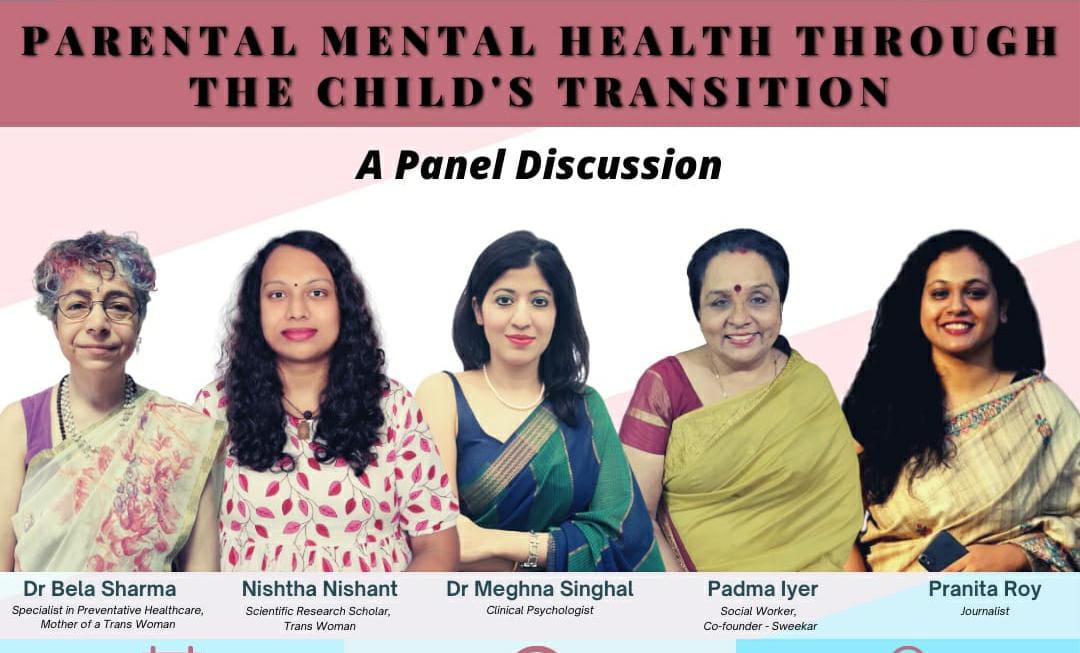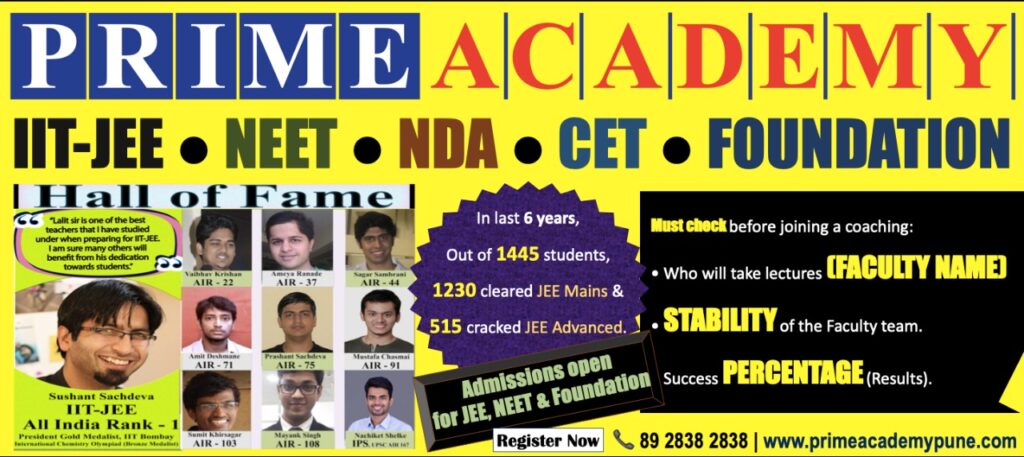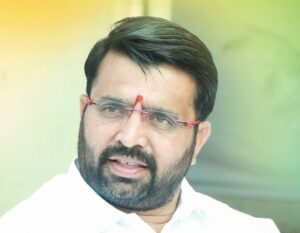“Parental Mental Health As Much Important As Child’s”

Manswi Panchbhai
Pune, 26th June 2022: On the eve of pride month, a panel discussion on “Parental Mental Health through Child’s Transition” was organized by ‘Maathr’ in association with ‘Sweekar’ on Sunday on the Google Meet Platform.
This pride month, ‘Maathr’, an initiative for maternal mental health and ‘Sweekar: the rainbow parents’, a group of parents of LGBTQ+ children from Mumbai came together to nudge us towards a rarely discussed issue: Parents’ mental Health during a child’s transition.
Transition is the period during which a person begins to live according to their gender identity, this may involve changing one’s appearance, name, pronouns, documentation or undergoing medical procedures.
It was focused on understanding the various nuances of experience of the parents of trans children, their relationships with their children and factors that influence their journeys. The panellists for the event were Dr Bela Sharma (Doctor and mother of a trans woman), Nishtha Nishant ( Researcher and trans woman), Dr Meghna Singhal (Clinical Psychologist), Padma Iyer (Equal Rights Activist and mother of Harish Iyer) and journalist Pranita Roy.
The discussion touched upon various aspects of the issue like parent-children relationships, parents’ coping mechanisms, risk and protective factors, media representation, community support, the role of the society and most importantly awareness and education.
The panelists brought a diversity of perspectives to the table and walked the audience through the complexities of the issue in a simple way. The key message they were driving at was that the Parent’s mental health is as much important as the child’s hence it must be paid heed to.
Acceptance is most crucial
Talking about kids coming out of the closet, Padma Iyer said, “Child is like a bud, they bloom like a flower after parental acceptance. As the child comes out, the parents too should come out to support them.” She further said that the biggest worry parents have is, ‘What will people say?’ and this affects them most. But one has to grow out of these insecurities to support their child completely. The connectedness of parents and child’s mental health is intrinsically rooted in acceptance and that is the first and most crucial step in this journey.
Struggles of the parents
Dr Bela Sharma shed some light on the struggles and upheavals of the parents by sharing her own experience. “Parents don’t have the luxury to break down, they have to be strong to be there for their child”, she said.
She further added that a child can go to the parents and cry but the parents have nowhere to go. They have to bottle up their sorrow which in turn affects their mental health negatively. “Here’s where groups like ‘Sweekar’ come to play which allow parents like us to come and cry and eventually heal”, Dr Bela said while thanking Sweekar.
Awareness and Education
A key point that kept coming up throughout the course of the discussion and which cannot be highlighted enough was the importance of awareness and education. The basic difference between gender & sexuality is not known to people hence the awareness must start from the grassroots, from our very homes. Talking of which Nishtha Nishant who is a transwoman said, “My mother wasn’t equipped with the right terminologies, she had misconceptions.”
She said Sweekar helped her mother understand LGBTQ+ and made her accept her child as she is. She also stated that misrepresentation of the queer community by the media was one of the reasons why it was difficult for her mother to come to terms with her.
Need for the right media representation
The media has long been misrepresenting the queer community by portraying them negatively and creating stereotypes and social stigmas. Addressing the issue of media representation of queer people, journalist Pranita Roy said that the films did portray the community negatively in the past and the press too paid less cognizance to their privacy and identity in the rush of breaking a story. But all that is slowly changing now however that does not justify the harm it has done to the community. “More regional media should start covering about LGBTQ community, so that their issues reach to the masses. As there’s a larger population consuming vernacular content. Media needs to be aware of all the terminologies and understand the issues to avoid misrepresentation or miscommunication in the coverage. It should be more cautious of the choice of words, terms and representation to avoid demeaning anyone”, she added.
Both Indian Culture and Science are queer-friendly
The discussion pressed on the importance of media in starting a conversation around the topic and championing the cause. It also discussed Indian culture and mythology which was never really binary and has always been welcoming and accepting of gender diversity. Dr Meghna Singhal also highlighted the importance of research and data to cut through the noise. As it can explain the issues with scientific evidence so society can have more trust and acceptance.






